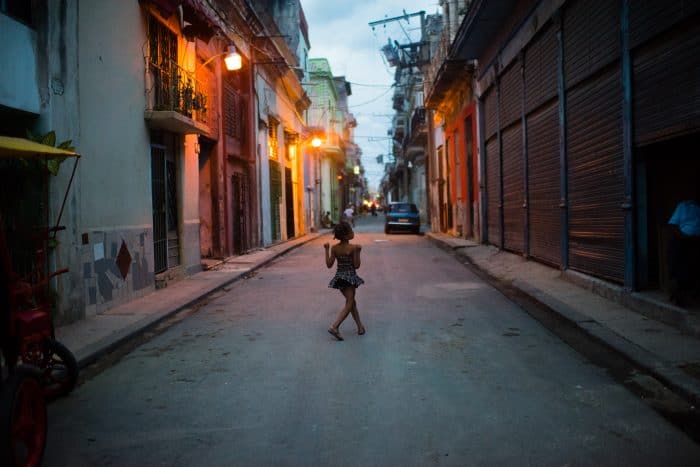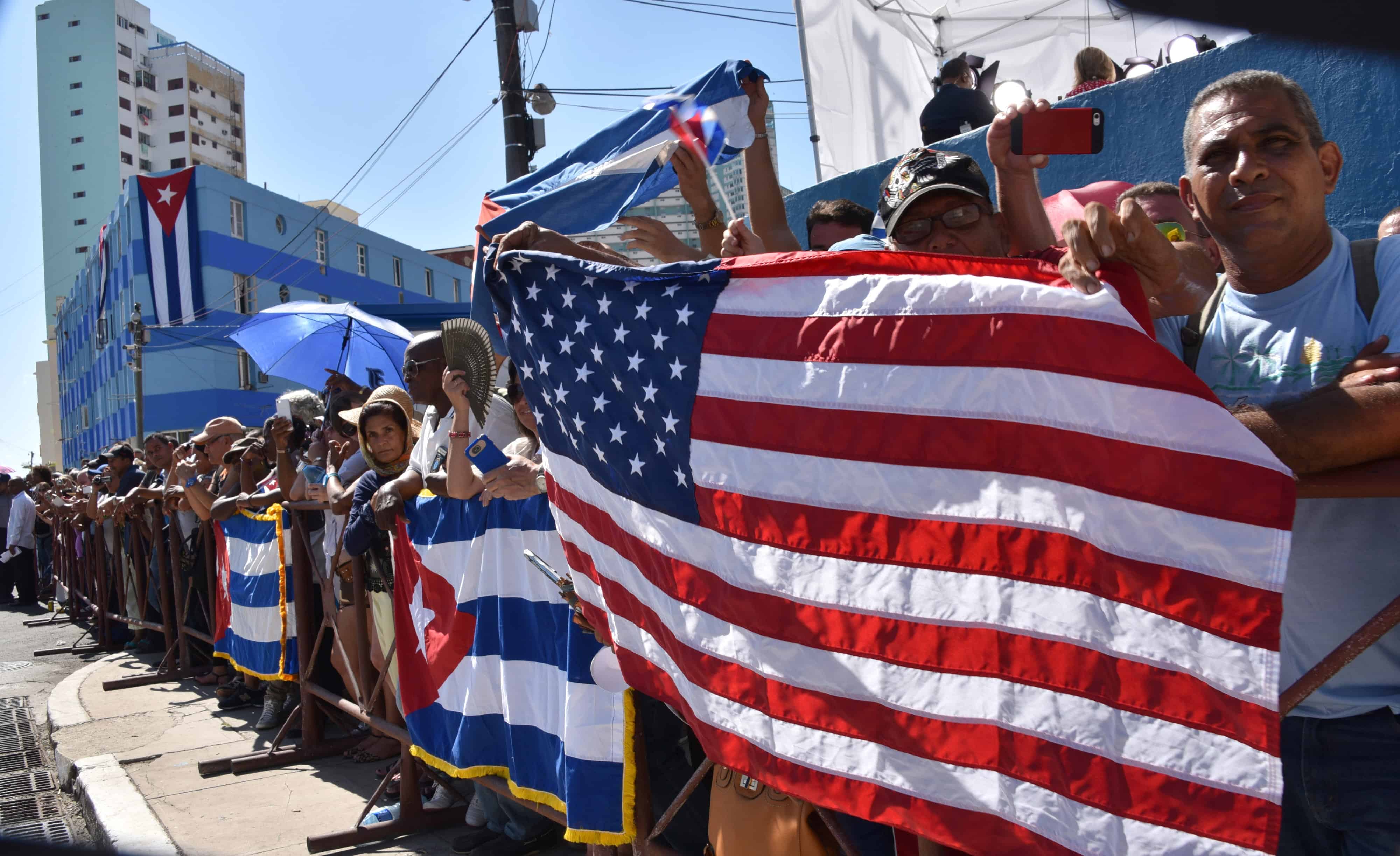WASHINGTON, D.C. – Barack Obama will become the first U.S. president to visit Cuba in almost a century next month, a symbolic visit that will cast off one of the last vestiges of the Cold War.
The White House announced that Obama and First Lady Michele Obama will travel to the Communist-controlled island March 21-22.
“Next month, I’ll travel to Cuba to advance our progress and efforts that can improve the lives of the Cuban people,” the U.S. leader said in one of a series of tweets.
The White House hopes that the trip will be a “Berlin Wall” moment, crowning what they say is one of the biggest foreign policy achievements of Obama’s presidency.
The last U.S. leader to visit the island while in office was Calvin Coolidge in 1928.
For generations in the U.S., Cuba has been synonymous with crisis and threat, from the disastrous CIA-backed invasion of the island at the Bay of Pigs in 1961, to the Missile Crisis the following year.
Since coming to office in 2009, President Obama argued that engagement would bear more fruit than embargoes and isolation.
In December 2014, Obama made a shock announcement that he and Raúl Castro had been in secret talks on a rapprochement. The pair met in April 2015 in Panama, making Obama the first sitting U.S. president to meet a Cuban leader since Dwight Eisenhower in 1956.
Diplomatic relations were restored in July, allowing the red, white and blue flags of Cold War foes to fly over Washington and Havana for the first time since 1961.
Next month, I'll travel to Cuba to advance our progress and efforts that can improve the lives of the Cuban people.
— President Obama (@POTUS44) February 18, 2016
Differences
A presidential visit will be the capstone of Obama’s policy of engagement, but it is also a gamble. Raúl Castro’s government has shown a willingness to open the economy, but Cuba’s political system is still dominated by the regime. Human rights groups say that detentions have actually increased in recent years, reaching around 8,000 a year even as longer-term prisoners have been released.
The White House said that during the visit Obama would meet civil society leaders, who remain under intense pressure from the regime. He is unlikely to meet long-time U.S. nemesis Fidel Castro, a top aide said Thursday.
“I wouldn’t expect him to meet with Fidel Castro, Raúl Castro is the president of Cuba,” deputy national security adviser Ben Rhodes said.
“We still have differences with the Cuban government that I will raise directly. America will always stand for human rights around the world,” Obama added.
Obama’s visit will come at a crucial time, just weeks before a crucial Cuban Communist Party congress.
The meeting could decide who becomes the first non-Castro to control Cuba since the brothers came down from the Sierra Maestra mountains and ousted Fulgencio Batista on New Year’s Day 1959.
Obama will want to prod Havana into opening up politically, but the White House is betting that opening Cuba to U.S. tourists and business is the fastest way to bring change.
Cuba lost its chief economic benefactor in 1991 as the Soviet Union collapsed and is likely to suffer the same fate again as tumult in Venezuela turns off the spigot of heavily subsidized crude.
For now the United States and Cuba are treading cautiously, taking incremental steps to facilitate trade and investment. The Obama administration has focused on regulatory changes to ease travel and trade between the two countries, which have close family ties. There are 1.8 million Cuban Americans and Cuba has a population of 11 million.
On Tuesday, the U.S. and Cuba signed an agreement authorizing daily U.S. commercial flights to the island for the first time in more than 50 years.
Photo gallery: Cuba as it was – A glimpse of life before the US arrives

Opposition at home
Cuba’s leaders will try to manage economic reform in a way that does not threaten their political power or vested interests behind state-run firms, following a lead from Vietnam and China. Average wages are $20 a month and Havana frets about any opening undoing its social progress since 1959. And the Cuban government’s baby steps on opening their economy clearly have not convinced those voting with their feet decisively since the past year’s improvement in bilateral ties.
Thousands of Cubans have left in recent months over concerns that the diplomatic rapprochement will prompt Washington to drop its policy of giving them automatic residency and the right to work when they set foot in the United States. Obama faces significant opposition to his Cuba policy at home, where the Republican-controlled Congress has made it clear it does not intend to end the embargo. For that to happen requires that Cuba move toward direct elections and begin to settle some 6,000 compensation lawsuits for U.S.-owned property seized during the 1959 revolution. Those suits are estimated to be worth about $8 billion.
Cuba is likely to become an issue in the 2016 presidential race, particularly in the battleground state of Florida. Republican presidential hopeful Marco Rubio, a son of Cuban immigrants, said he would not travel to the island “if it’s not a free Cuba.”
“They are a repressive regime. There’s no elections in Cuba. There is no choice in Cuba,” argued Rubio, who grew up in Las Vegas and Florida.






